
Knowing how to repel bugs is key to maintaining a clean and ick-free home where you can live, eat, and sleep in peace. But keeping bugs away doesn't have to cost the earth or involve harsh chemicals.
From ants to mosquitos, pests can be a real nuisance. In this guide, our industry experts reveal 10 things already in your cabinets that will ward off bugs, explain why they work, and share tips on how to use them as free pest-control hacks.
Though knowing how to identify bugs in your home is handy, knowing exactly how to banish them will keep your pad a pest-free zone.
Repel bugs without spending a penny
Just like getting rid of ants in a kitchen, it turns out that there's a surprising number of natural or daily items that can keep your home pest-free, without the need for harsh chemicals or great expense.
Where our pros have recommended products, we've used our wealth of in-house shopping expertise to match highly-rated items from trusted retailers.
All prices were correct at the time of publication.
1. Citronella oil

Citronella oil is one of the most well-known natural bug repellents. Its strong aroma masks scents that attract bugs in the first place, making it difficult for them to locate their targets.
Andrew Greess, owner of QSpray, says, "Citronella oil has to be one of the best natural insect repellents, especially effective against mosquitos and other insects that fly about during warmer weather.
"Derived from various species of citronella grass, its strong citrus-like odor masks the smells of other things that would typically attract bugs — like the scent of humans."
Citronella oil can be found in various household items including candles (these Aottom Store Citronella Candles from Amazon are effective both indoors and outdoors), incense sticks, diffusers (Walmart's Citronella Oil from Diffuse Essential Oils works with steam, reed and ultrasonic diffusers) and aerosols. You can also apply it directly to your skin.
Andrew adds, "On direct contact, citronella oil is an irritant to an insect’s nervous system, discouraging them from landing on you."
2. Peppermint
The fresh scent of peppermint is pleasing to humans but repulsive to bugs, including ants and spiders (learn how else to get rid of spiders in our dedicated guide).
Andrew says, "Peppermint oil can be a great first line of defense against ants and some beetles that might be interested in coming into your home. In addition to masking scents (like the pheromone scent trail ants follow), the menthol and menthone in peppermint oil irritate insects’ nervous systems."
To harness its, you can create a homemade spray by mixing peppermint essential oil and water (Everspring's Peppermint Pure Essential Oil from Target has a crisp, fresh scent).
Karina Toner, operations manager at Spekless Cleaning, adds, "Simply mix a few drops of peppermint oil with water in a spray bottle and spritz around windows, doors, and other entry points."
She adds, "Soaking cotton balls in peppermint oil and placing them in cabinets or other bug-prone areas can also be effective."
3. Citrus peel
Citrus peels, such as those from lemons, oranges, and grapefruits, contain natural oils bugs dislike, working wonders both in the home and in the garden.
Simply save your citrus peels after enjoying a snack and place them strategically around your home.
Karina says, "Citrus peels contain natural oils that are toxic to insects, including mosquitoes and ants. The scent also masks human odors, making it harder for bugs to detect us.
"Simply place citrus peels in areas where bugs are a problem, or by entry points such as doorways and window sills. Boiling citrus peels in water can also create a natural repellent spray."
4. Eucalyptus
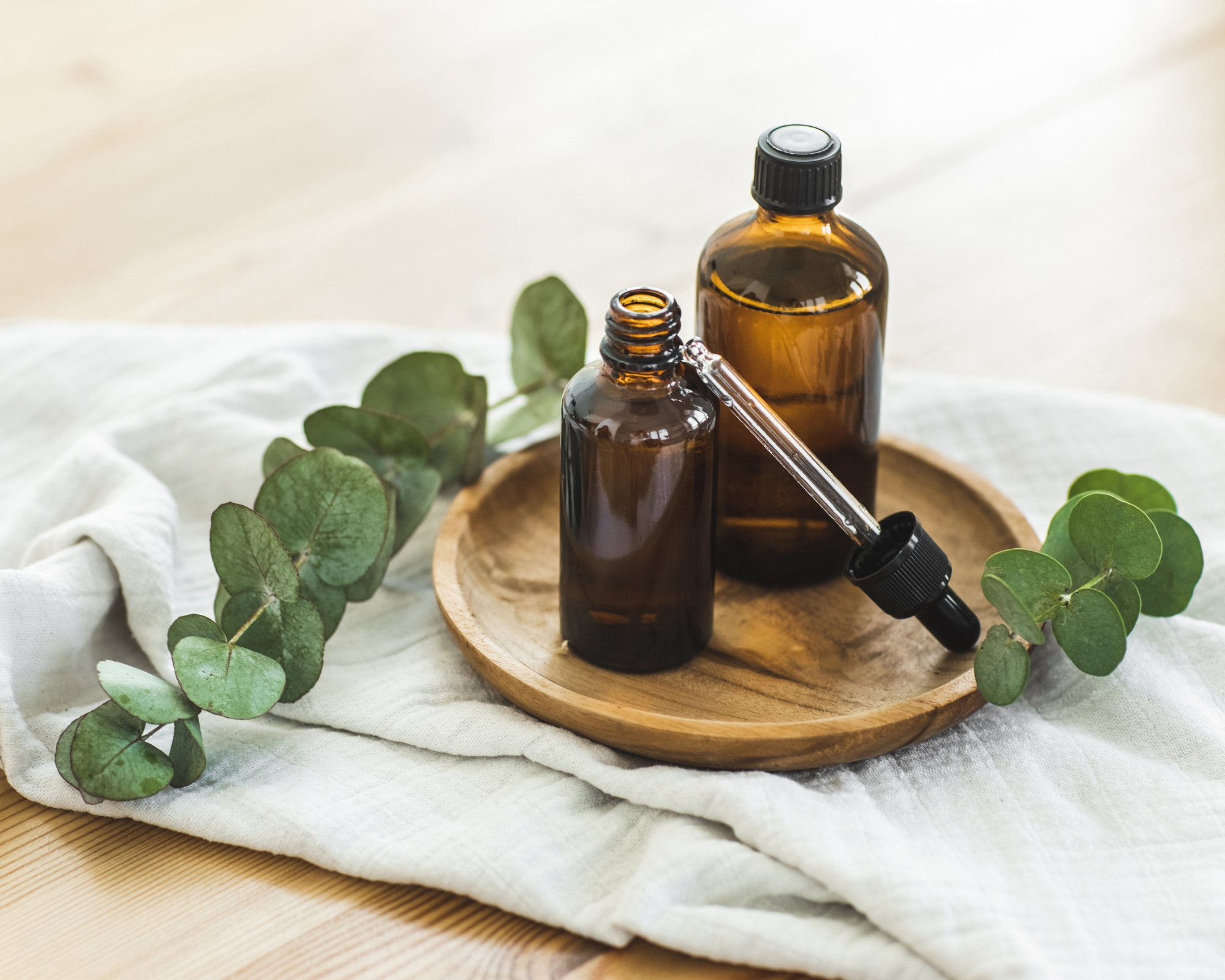
Eucalyptus oil is another potent bug repellent with a refreshing scent.
Cleaning expert Angela Rubin, of Hellamaid, says, "Eucalyptus leaves contain compounds like citronellal and eucalyptol, which have strong insect-repelling properties.
"Simply crush fresh eucalyptus leaves to release their oils, then place the crushed leaves in a bowl or sachet and put them in areas where bugs are a problem, such as near windows or outdoor seating areas."
Angela adds, "Refresh the leaves regularly to ensure continued effectiveness."
You can also create a spray by mixing water with eucalyptus oil (this Handcraft Blends Eucalyptus Essential Oil from Amazon has an average score of 4.5/5 from more than 100,000 reviews).
5. Lavender
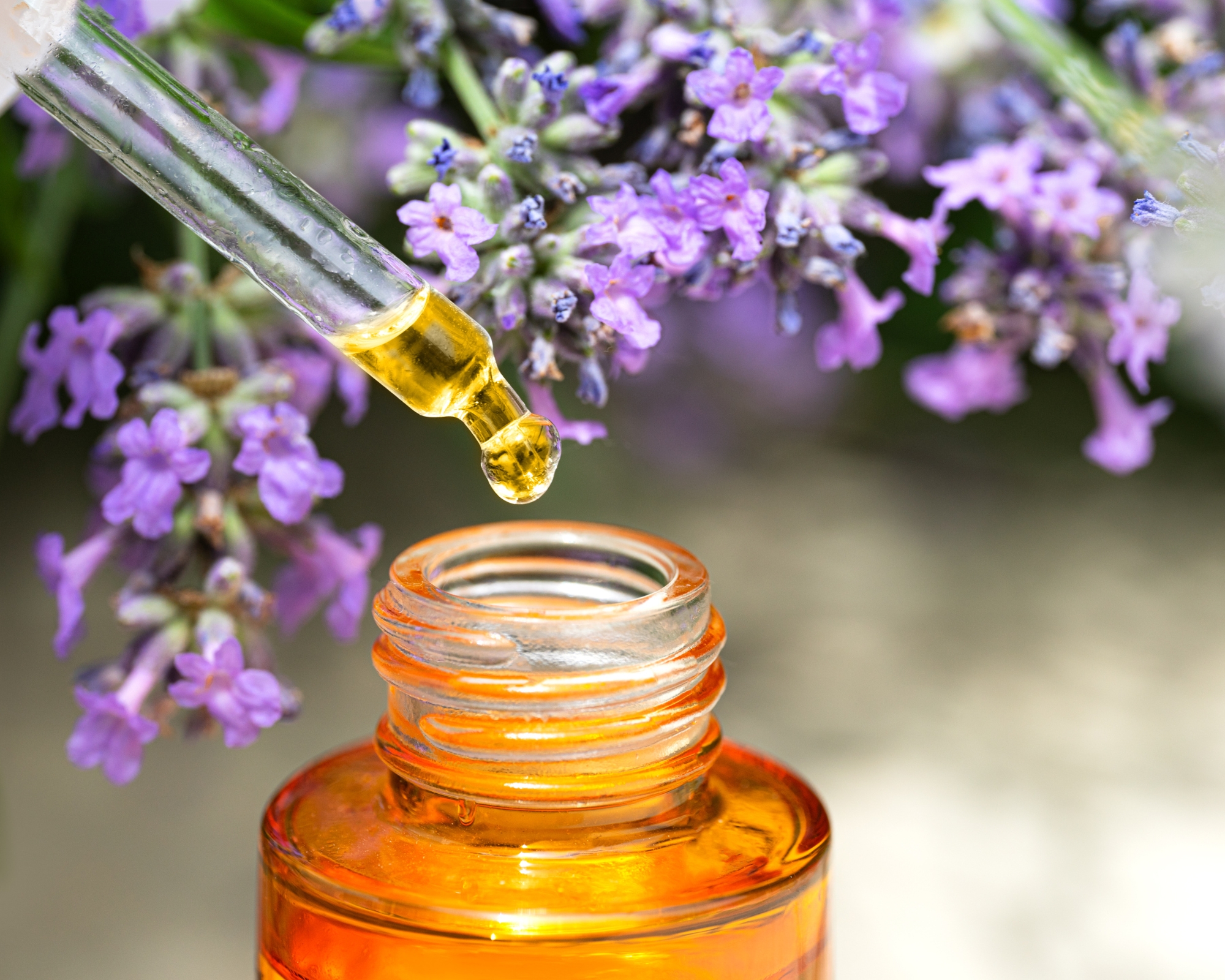
Lavender not only has a pleasant aroma but also bugs hate it, making it one of the 10 top plants that repel mosquitos.
Angela says, "Lavender contains essential oils like linalool and linalyl acetate, which have natural insect-repelling properties. Furthermore, the scent of lavender is known to repel mosquitoes, flies, and moths."
It's one of the reason you'll find this ingredients in mothballs, a great way to get rid of moths.
"To use, place dried lavender flowers in small sachets or bags, before hanging or placing the sachets in areas where bugs are a nuisance, such as closets, drawers, or outdoor seating areas," Angela adds.
You can also purchase lavender essential oils, diffusers and air fresheners for your home, such as the Air Wick Essential Mist Lavender & Almond Blossom Air Freshener from Target, which runs for an eight-hour spray cycle before going into standby mode overnight.
Angela adds, "Alternatively, you can make a lavender-infused spray by steeping dried lavender flowers in water."
6. Listerine
Believe it or not, the mouthwash you use to freshen your breath can also keep bugs away. Listerine contains ingredients like eucalyptol, thymol, and menthol, which bugs find unpleasant.
Amy Poulton, DIY expert and editor at Hometalk, says, "To make a quick DIY mosquito repellent solution, simply fill a spray bottle with Listerine and mist yourself or your household surfaces.
"The primary active ingredient in Listerine is eucalyptol, a derivative of eucalyptus oil, which mosquitoes dislike. However, the repellent effect only lasts 30-40 minutes, so re-application is needed."
You can also use Listerine-soaked cotton balls as a deterrent near common entry points such as window ledges.
This Listerine Cool Mint Antiseptic Mouthwash from Amazon has that extra-strong smell you want when ridding your home of unwanted intruders, including roaches, which our experts have shared how to get rid.
7. Used teabags
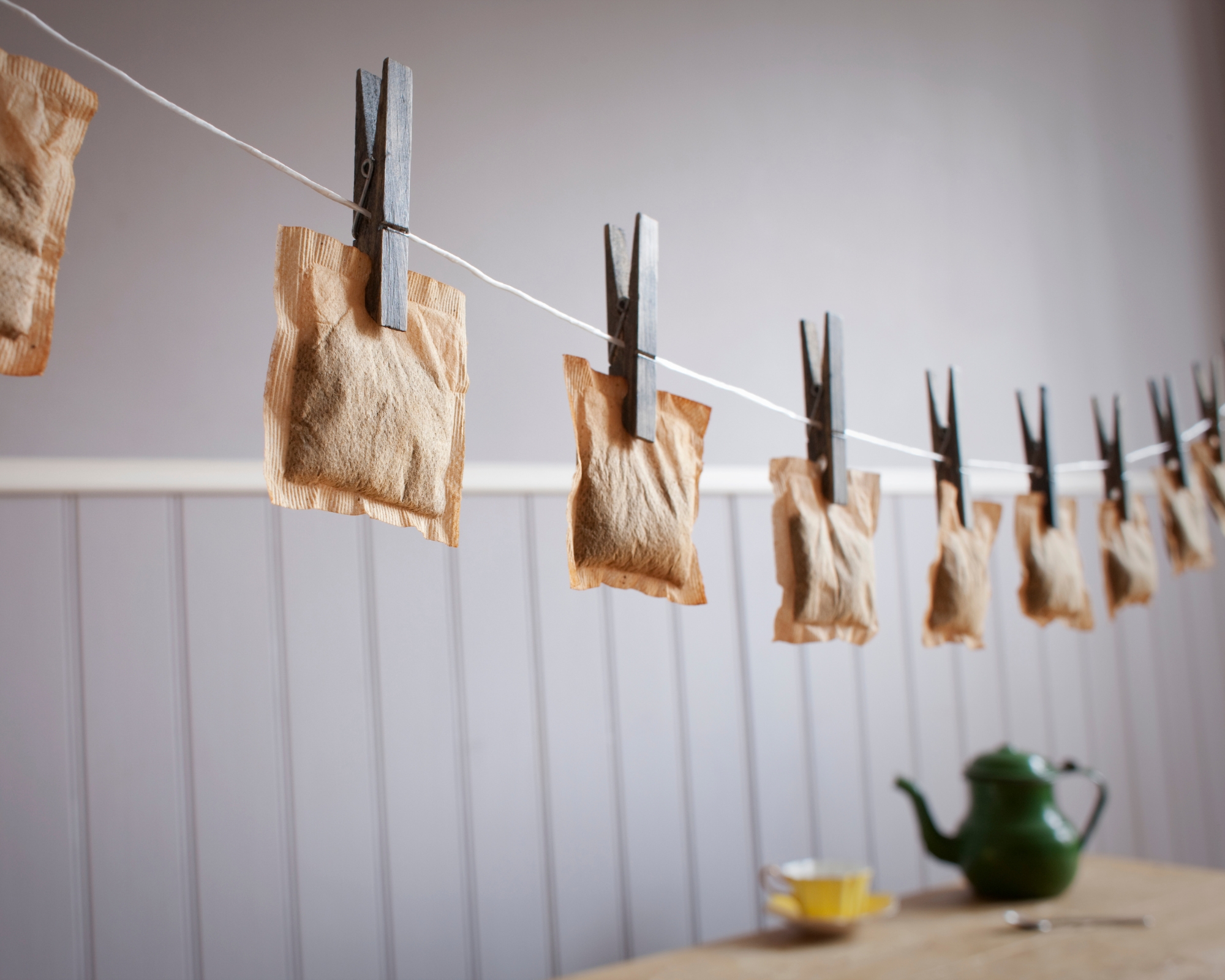
Don't throw away those used teabags just yet — they can serve as effective bug repellents!
Tea contains tannins and caffeine, which are compounds bugs find unappealing. After brewing your tea, allow the used tea bags to cool, then place them in areas where bugs tend to congregate.
Amy says, "One clever and natural way to repel pests is by using dried tea bags, particularly peppermint-flavored ones. Many pests, including insects, don't like the smell of peppermint, lemon and cinnamon, so those are the best flavors to go for.
"The tea bags can be placed or hung around your home to deter insects and rodents with their scent."
These Bigelow Vanilla Chai Black Tea Bags from Target brings the perfect combination of delicious flavour for you, and potent pest-repelling scent for those pesky uninvited guests.
For more rodent, solutions dive into our expert guides on how to get rid of mice and rats.
8. Coffee grounds

We all love a great cup of coffee. But coffee grounds are not just for brewing your morning joe — they can also serve as an effective bug repellent.
Bugs like ants, slugs, snails and mosquitoes are repelled by the strong scent of coffee grounds, making them a good natural deterrent.
To use coffee grounds to repel bugs, sprinkle them around the perimeter of your home or garden, focusing on areas where bugs are likely to enter. You can also create a barrier of coffee grounds around plants to protect them from pests.
Additionally, you can use brewed coffee grounds as a spray by diluting them with water and applying the mixture to surfaces where bugs are present. The caffeine in coffee grounds acts as a natural insecticide, making it an effective solution for controlling bug infestations.
This Lavazza Qualita Rossa Bag of Espresso Beans from Amazon averages 4.5/5 from more than 24,000 reviews and is great if you want to combine drinking great coffee with repelling bugs from your home.
9. Tea tree oil
Tea tree oil is renowned for its natural antimicrobial properties, but it's also an effective bug repellent.
Vanessa Bossart, founder of GreenTerra Cleaning, says, "We've had considerable success using tea tree oil as a potent bug deterrent. Mixing a few drops of tea tree oil with water in a spray bottle creates an effective natural repellent.
"Spraying this solution around the home, especially near entry points and ant trails, helps keep bugs away without resorting to harsh chemicals."
The Spring Valley 100% Tea Tree Oil from Walmart boasts great results as both a skincare product, and insect repellent.
10. A clean home

Perhaps more effective than any one repellent, maintaining a clean and clutter-free home is essential for keeping bugs at bay.
Bugs are attracted to food crumbs, spills, and standing water, so be sure to clean up spills promptly, empty trash bins regularly, and store food in sealed containers. Vacuuming and sweeping floors regularly can also help eliminate bugs and their eggs, reducing the likelihood of infestations.
Vanessa says, "Bugs like ants are in constant search for food and water, so it's vital to eliminate these attractants by storing food carefully and maintaining a rigorous cleaning schedule, including deep-cleaning your kitchen.
"Wipe down all kitchen surfaces with a homemade solution of water and vinegar to dissolve food residues and sugary spills that ants find irresistible. Put extra emphasis on cleaning under appliances and in corners where crumbs tend to accumulate."
This Good & Gather Distilled White Vinegar from Target is a high-quality option and rated five stars by thousands of shoppers.
Shop commercial sprays
For those who prefer a ready-made chemical solution, there are plenty of commercial bug sprays available that use natural ingredients to repel bugs. Look for sprays that contain ingredients like citronella, peppermint, lavender, or eucalyptus for maximum effectiveness.
When using commercial sprays, read and follow the instructions carefully. and apply them to areas where bugs are likely to enter, such as doorways, windows, and outdoor seating areas.
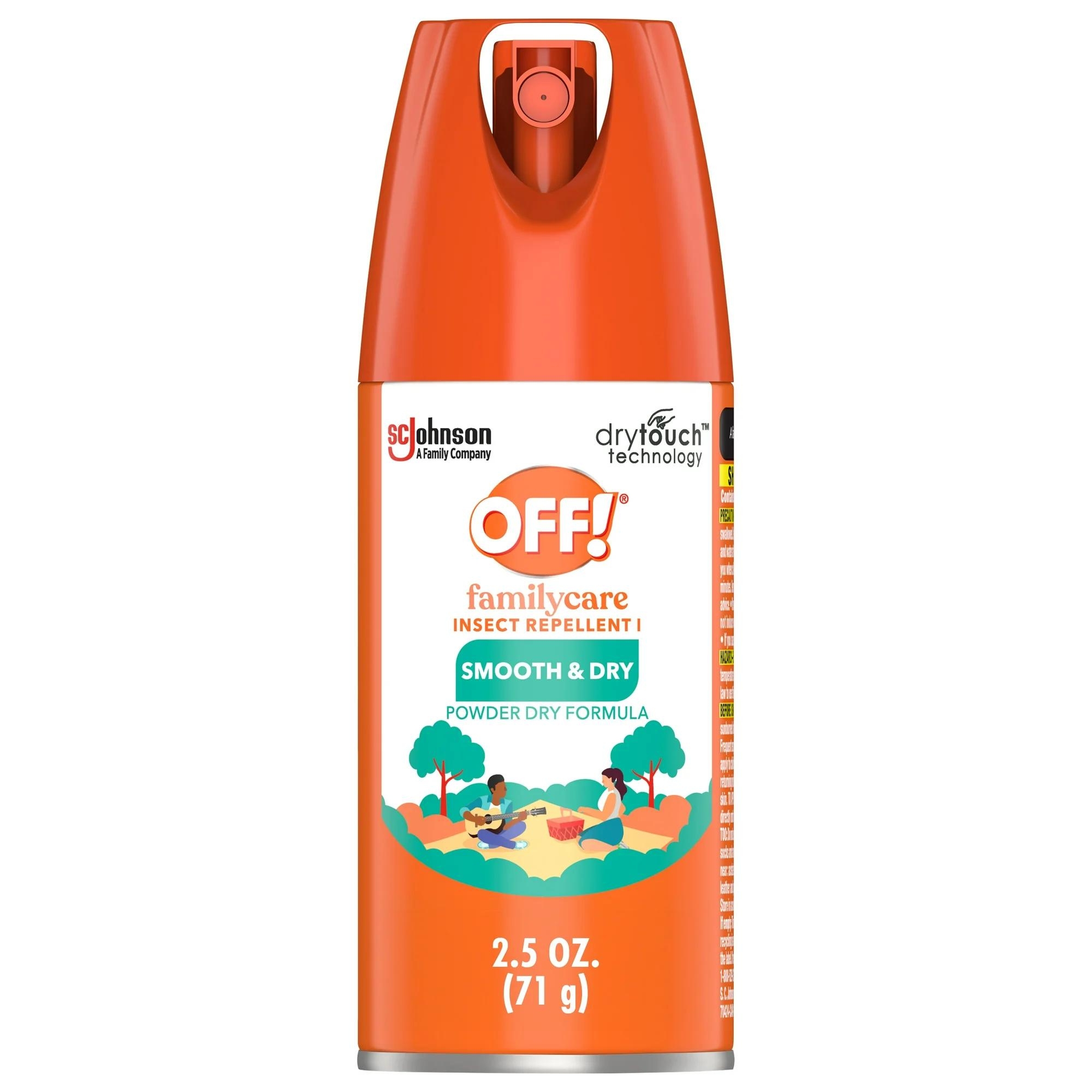
Price: $4.43
Size: 2.5 FL. OZ
This powder-dry formula with 15% DEET effectively repels bugs including gnats, ticks, chiggers, fleas, and mosquitos. It's non- greasy skin-safe formulation can be applied to adults and children, as well as most clothing as it doesn't damage cotton, wool or nylon. Check the manufacturer's instructions for how to use it, especially when applying to children as the steps are different to applying to adults.
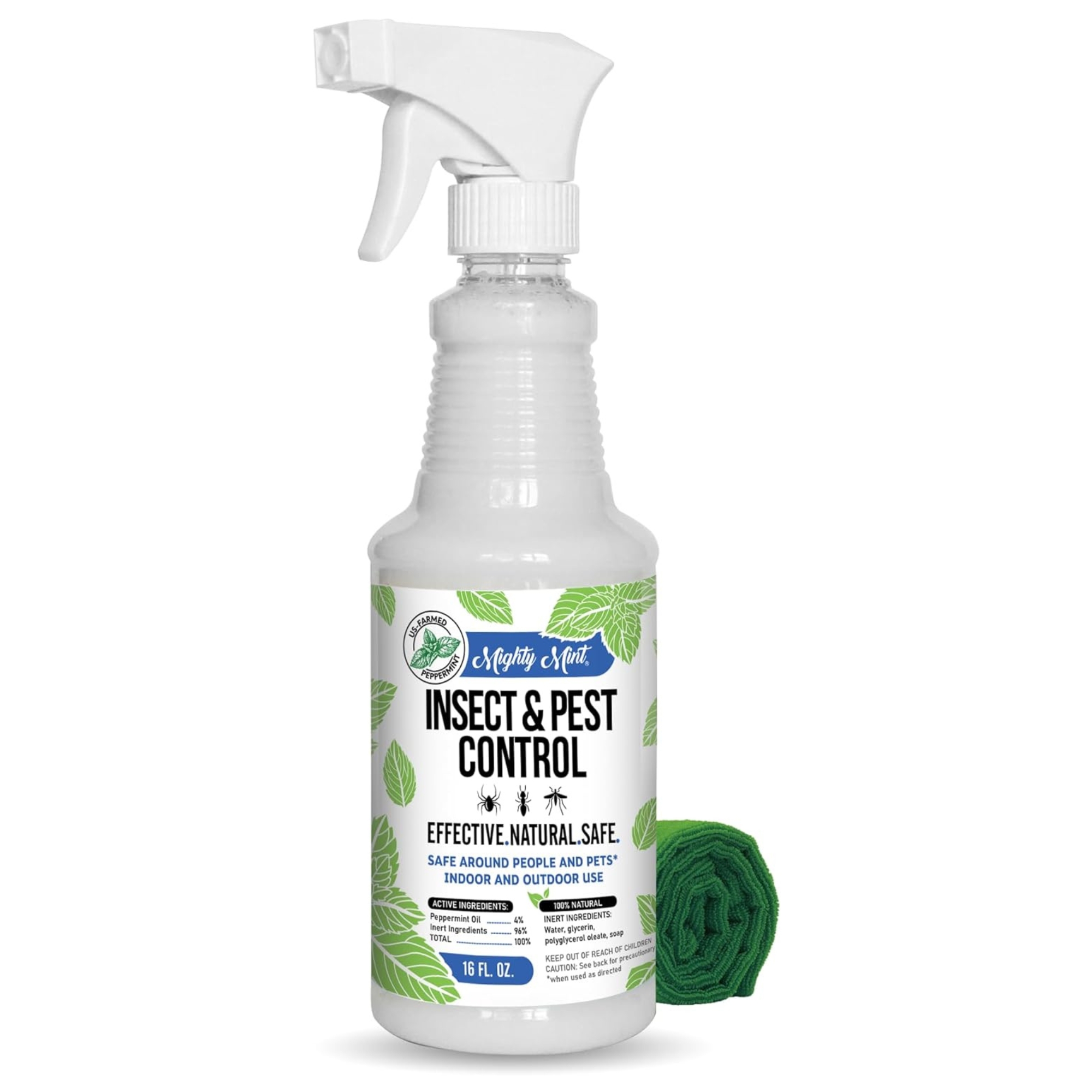
Price: $19.98
Size: 16 FL. OZ
Made from plant-based ingredients and free from sodium lauryl sulfate (which can block pores and cause acne in some people), when used as directed, this effective, natural repellent spray can safely be administered near children and pets. It was bought 30,000 times last month, with reviewers that were tackling ants and roaches praising its potency.
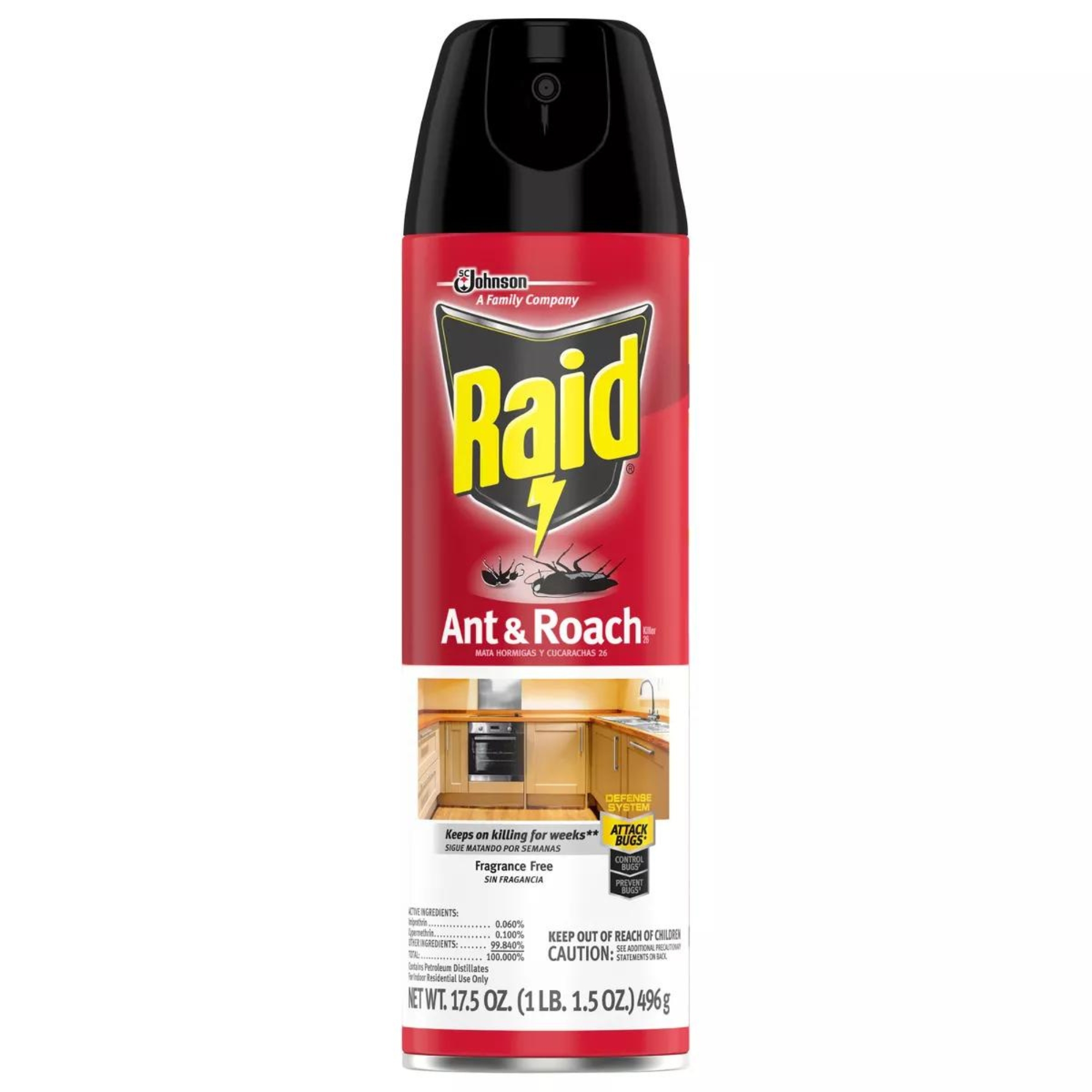
Price: From $5.99
Size: 15.5 or 35 FL. OZ
This spray's special formula kills pests on contact and keeps killing with residual action for up to four weeks. Effective on variety of bugs including ants, roaches, and household spiders. Real Homes editor Punteha van Terheyden loves this item, having used it to tackle multiple ant infestations in different homes with great results. She says a few days worth of cleaning and tackling ants with this spray in the summer stopped them coming back for good.
Now you're armed against pesky invaders, learn more about how to prevent bed bugs and how to get rid of flying ants.







